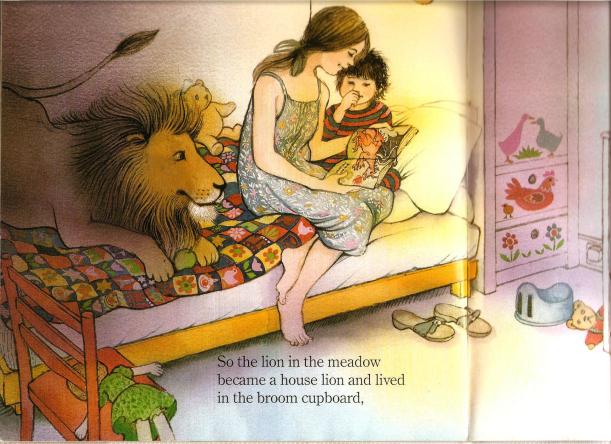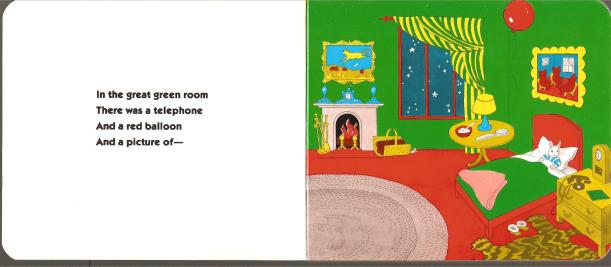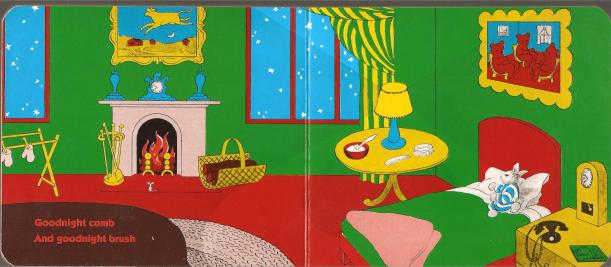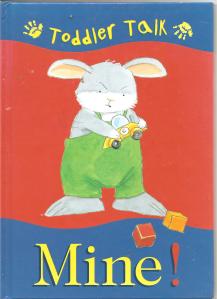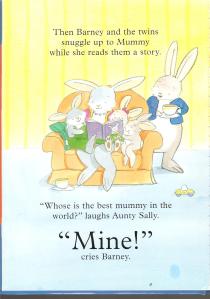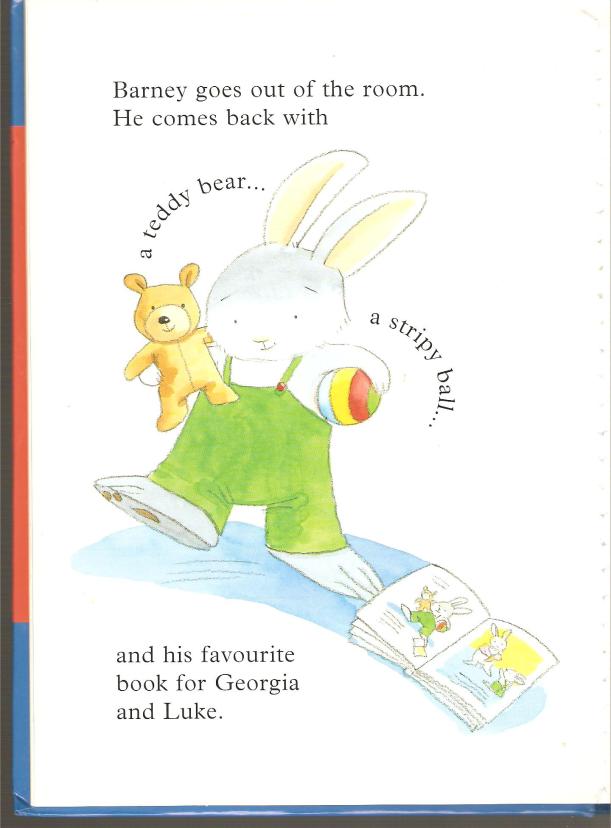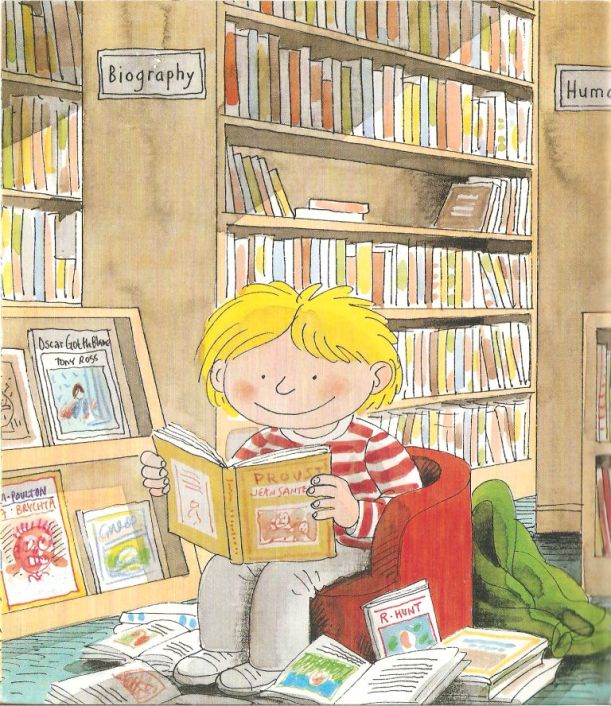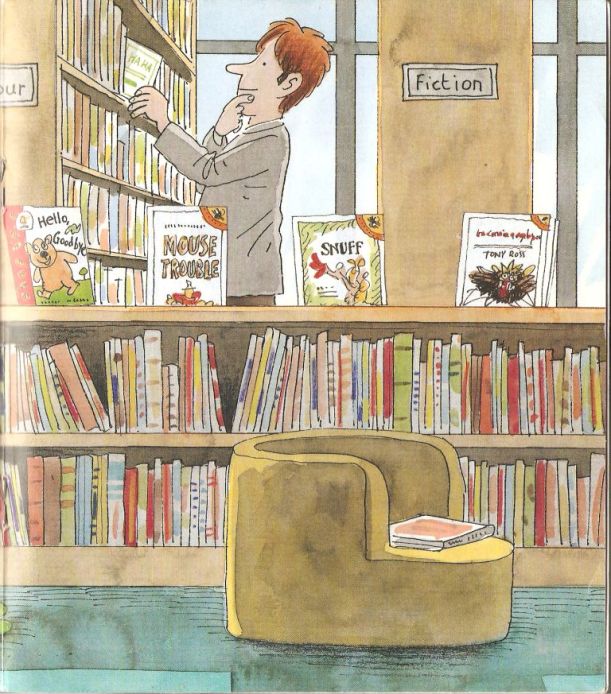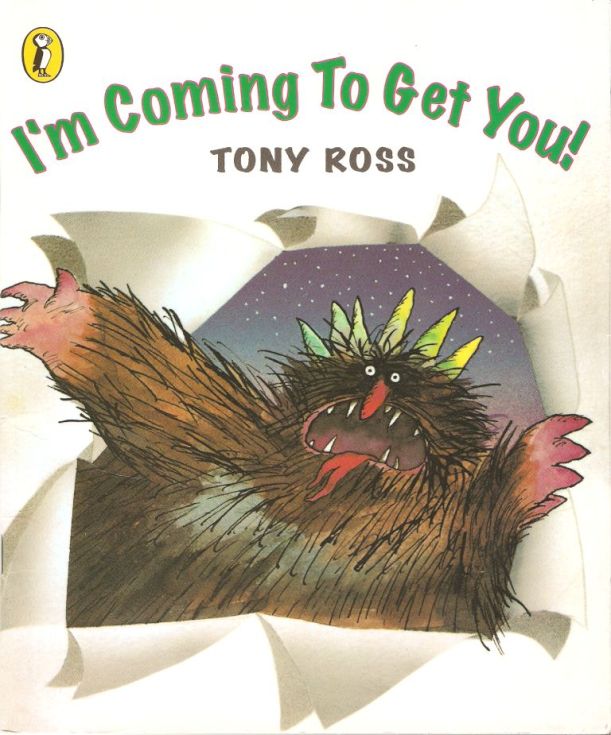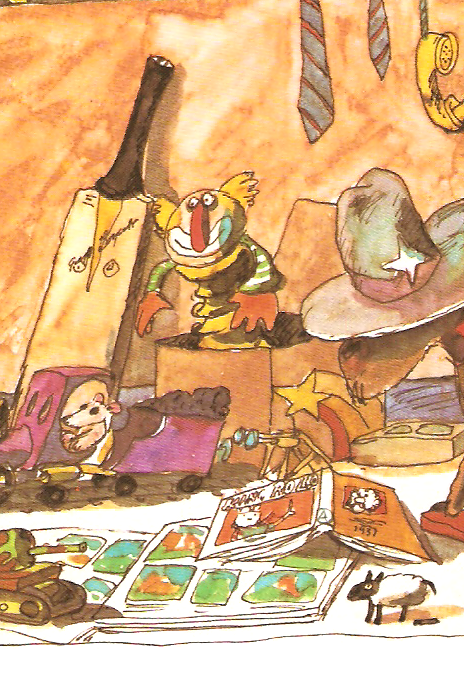A Lion In The Meadow by Margaret Mahy is a classic despite, or because of, its irony and ambiguity about the truth of stories. A mother reproves her little boy for making up stories, but her own story also seems to change what the little boy sees happening.
The version which I borrowed from our local library and photographed (Puffin, 1989) ends with the mother reading a bedtime story which is clearly identifiable from the picture of the dragon as, of course, A Lion In The Meadow. The last line is “So the lion in the meadow became a house lion and lived in the broom cupboard, and when the little boy had apples, stories and a goodnight hug, the lion had apples, stories and a goodnight hug as well.”
To my surprise, it turns out that Mahy had changed the ending in 1986, when the book was republished with new pictures by the original illustrator, Jenny Williams. In the original edition, from 1969, the little boy points out a picture of a lion in his alphabet book while the ‘real’ lion lies at the mother’s feet. The last line is either brutal or mystical, depending whether you think stories need to be invented: “The mother never ever made up a story again.”
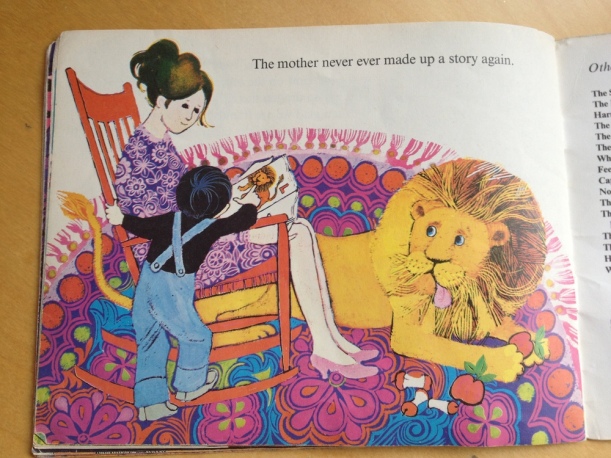
Original ending, photographed by Jenny Bloomfield
